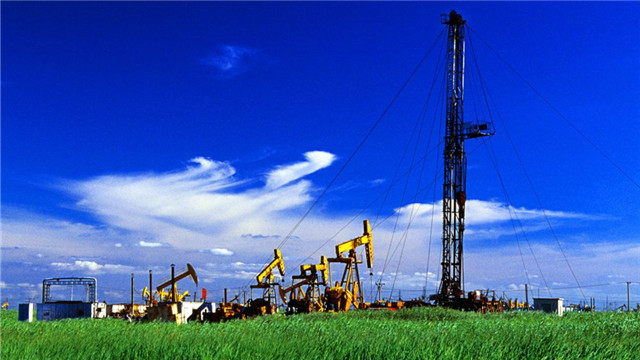Article Archive
Article Archive
- Introduction of Cement Slurry System (Part 1)
- Introduction of Cement Slurry System (Part 2)
- Introduction of Cement Slurry System (Part 3)
- Introduction of Cement Slurry System (Part 4)
- High Temperature and High Pressure Cementing Technology
- Low Density Cementing Slurry Technology
- Anti Gas Channeling Cementing Technology
- Drag Reducing Agents (DRA) or Drag Reducers (DR)
- Nitrogen Surfactant Compound Huff and Puff Technology
- Oil Washing Technology for Increasing Production
Abstract: Excessive organic chlorine contained in crude oil is one of the key problems that lead to the corrosion of refining equipment. This paper studies the influence of water flooding additives, injection water and acidizing solution on the content of organic chlorine in the crude oil of Bamianhe Oil Field in Jianghan Oilfield, probes into the chemical reaction way of organic chlorine produced in the crude oil of Bamianhe Oilfield, and puts forward the suggestion of controlling the use of chemical aids containing chlorine in the crude oil, which can avoid the problem of excessive organic chlorine in the crude oil and the organic chlorine corrosion of the downstream refining equipment Reference.
With the exploitation of hard to use reserves, the proportion of poor heavy oil in crude oil is gradually increasing, and the content of gum, asphaltene, metal, sulfur, acid, chlorine and other impurities are also increasing, which brings a series of adverse factors such as inferior products and equipment corrosion to the refining production. The decrease of crude oil quality is mainly caused by the increase of the proportion of poor heavy oil, and the most prominent one is the corrosion problem caused by chloride. Chloride and other corrosive substances, such as sulfide and nitride, constitute a lot of complex corrosion systems, which exist in the low temperature and high oil parts of atmospheric and vacuum distillation, catalytic cracking, hydrocracking and other units, resulting in more and more serious corrosion of refinery equipment, and accidents caused by corrosion also occur occasionally.
The chlorine in the crude chloride is divided into two forms: inorganic chlorine and organic chlorine. The organic chlorine is accumulated for a long time, and it mainly comes from two sources: one is the natural organic chloride, which exists naturally in the form of some complex compound, and is mainly concentrated in the asphalt and gum (affected by it, the FCCU takes the heavy oil such as residual oil as the raw material out of the refinery The current abnormal shutdown frequency is much higher than that of other refineries); second, the chemical aids used in the oil production process, inorganic and organic chlorine containing chemical aids used in the oil field can be mixed into the crude oil in the production process, and the chlorides in these two forms may be converted into organic chlorine substances in the crude oil. Inorganic chlorine can be removed by desalting and dehydration of crude oil. However, for organic chlorine and organic chlorine secondary from inorganic chlorine, conventional methods are not easy to remove, which is the main source of organic chlorine in crude oil. It can be seen from the source and increasing mechanism of chlorine in crude oil that organic chlorine substances that cannot be effectively eliminated after electric desalting can be hydrolyzed again to produce corrosive hydrochloric acid in crude oil processing process, and then form HCI-H₂SH₂O system with H₂S in naphtha in dew point temperature and water phase, thus causing serious corrosion to crude oil processing equipment, and at the same time causing catalytic reforming catalyst Chemical poisoning. In order to eliminate the influence of organic chlorine completely, the most fundamental measure is to analyze the mechanism of increasing organic chlorine in crude oil due to the use of chemical additives, and to control the use of all kinds of chemical additives or measure fluids containing chlorine.
To be continued next Monday……….




